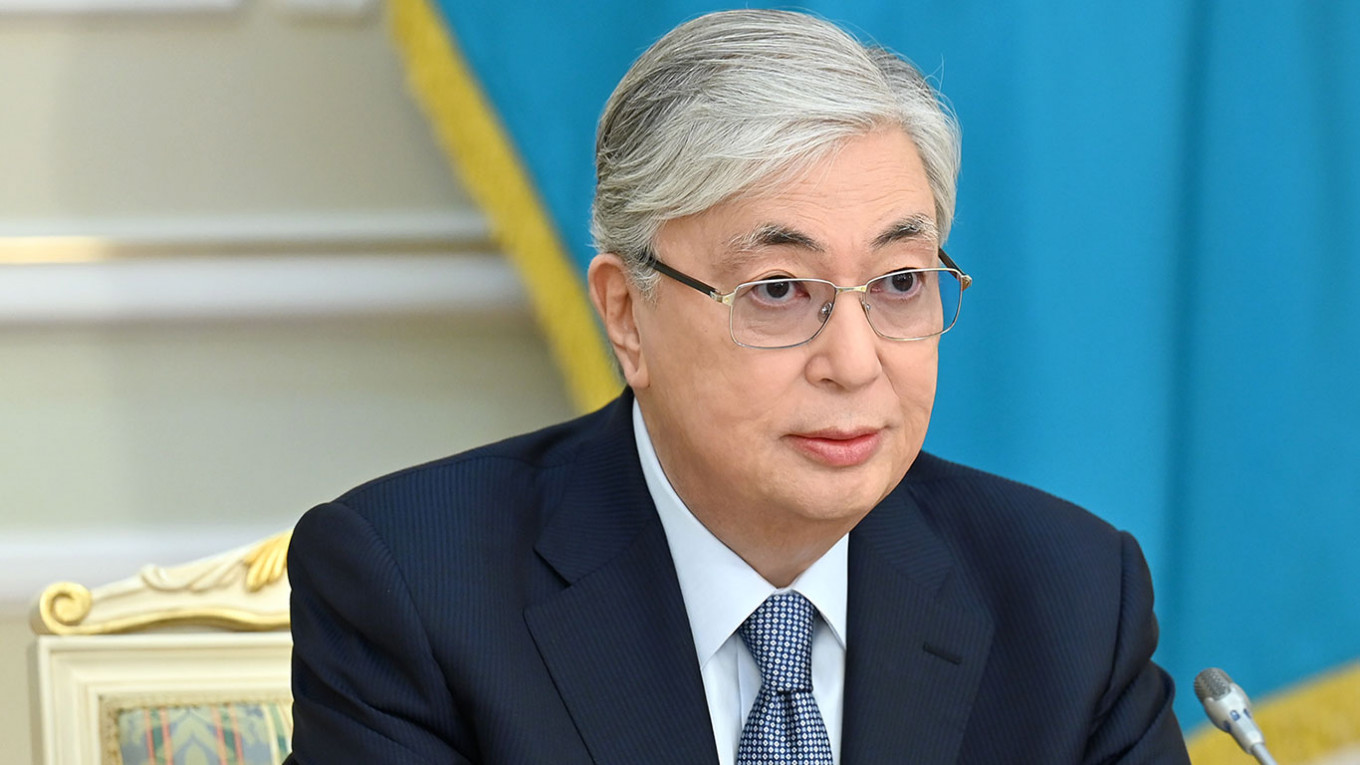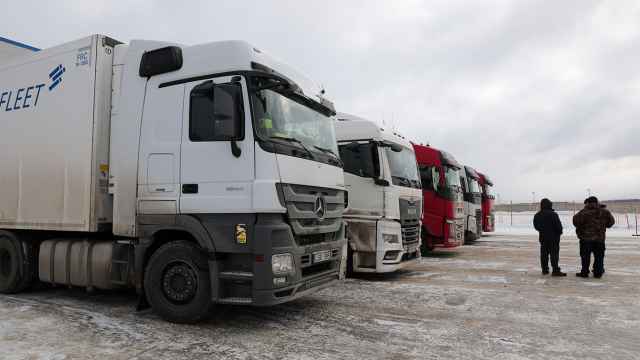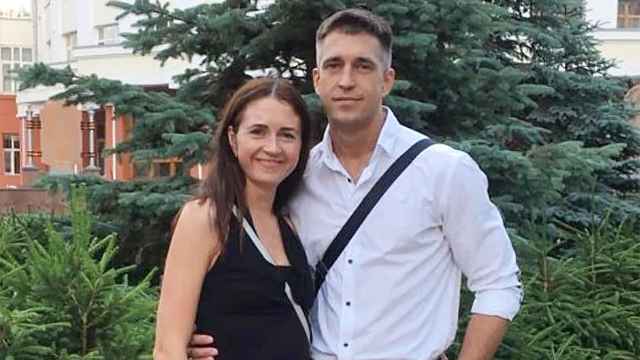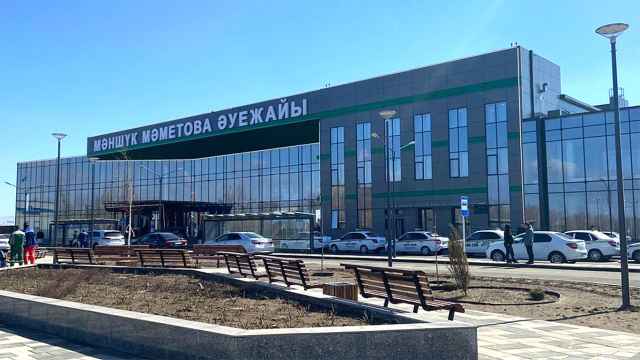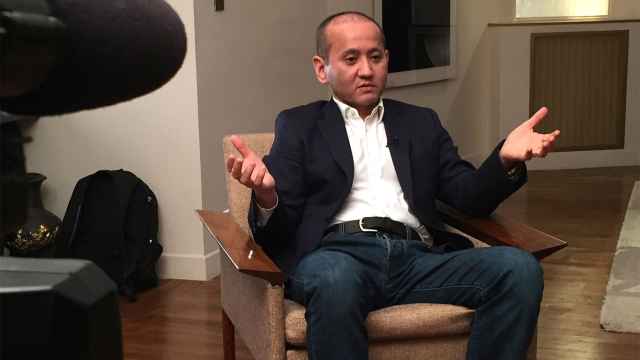Kazakhstan's President Kassym-Jomart Tokayev issued rare criticism of his long-ruling predecessor Tuesday, and said he expected Russian-led forces to leave the troubled Central Asian country in the next 10 days.
The oil-rich country's descent into chaos has laid bare infighting at the top of a government once dominated by Tokayev's mentor, 81-year-old Nursultan Nazarbayev.
The older man retains the constitutional status of "Leader of the Nation" despite stepping down from the presidency in 2019.
Addressing lawmakers in a video conference broadcast live, Tokayev fired an eyebrow-raising broadside at Nazarbayev as the post-Soviet country reels from unprecedented violence that began with peaceful protests over an energy price hike.
Tokayev, 68, said Nazarbayev's rule had created "a layer of wealthy people, even by international standards."
"The time has come to pay tribute to the people of Kazakhstan and help them on a systematic and regular basis," Tokayev added, noting that "very profitable companies" would be asked to pay money into a state fund.
"The current system is oriented towards major structures and is based on the principle: 'everything for friends and laws for everyone else'," he said.
Both Kazakhstan and Russia have framed last week's unrest that left dozens dead and almost 10,000 people arrested as a coup attempt assisted by foreign "terrorists", but have provided little supporting evidence.
Phased withdrawal
Following a request from career diplomat Tokayev, the Moscow-led Collective Security Treaty Organization (CSTO) deployed troops to bring about order and shore up the authorities.
On Tuesday, Tokayev announced "a phased withdrawal" would begin in two days and take "no more than 10 days."
"The main mission of the CSTO peacekeeping forces has been successfully completed," he said.
The CSTO mission of more than 2,000 troops was deployed at the peak of the crisis, after armed clashes between government opponents and security forces and a looting spree trashed parts of the largest city Almaty.
The decision was a first for the CSTO, often touted by Moscow as a NATO equivalent but previously reluctant to interfere in unrest in Central Asia, a region with long historical ties to Russia.
Concern has mounted that Moscow could leverage the mission to entrench its influence in Kazakhstan and US Secretary of State Antony Blinken warned that "once Russians are in your house, it's sometimes very difficult to get them to leave."
First family thirst
Tokayev appeared to further bolster his position by backing acting prime minister Alikhan Smailov to take on the job permanently on Tuesday — a nomination that won the unanimous support of lawmakers.
Former national security committee chief Karim Masimov — a key Nazarbayev ally viewed as perpetuating the retired president's influence over the government — was arrested on treason charges Saturday in connection with the unrest.
Even if Nazarbayev — the son of shepherds who rose through the communist party's ranks — is now being sidelined politically, dislodging his family's extensive interests in Central Asia's largest economy may take time.
In a significant move Tuesday, Tokayev announced plans to bring an end to a widely criticized private recycling monopoly linked to Nazarbayev's youngest daughter, Aliya Nazarbayeva, 41.
"This should be done by a state organization, like in other countries," he said of the scheme.
But middle daughter Dinara and her husband Timur Kulibayev control Halyk, the largest commercial bank, and are among the richest people in the country. Kulibayev is moreover a key player in the flagship oil sector.
Oldest daughter Dariga Nazarbayeva's political career, mainly in the rubber-stamp legislature, has been marked by a series of controversial statements and perceptions of an abrasive style.
The 58-year-old's reported business interests are also rumored to be extensive.
Leaks of offshore financial data and a High Court challenge in London have meanwhile revealed the extent of her family's foreign property holdings — part of a trend of capital leaving that country that Nazarbayev officially discouraged while president.
Many residents of Almaty credited the CSTO as a stabilizing force that had helped Tokayev gain control over the situation after spending several days inside as gunfire echoed around the city.
Roza Matayeva, a 45-year-old English teacher, got used to tuning in to her radio during the five-day internet blackout in Kazakhstan's financial hub that ended briefly Monday morning before the city of 1.8 million went offline again at lunchtime.
News that the Moscow-led bloc had agreed to Tokayev's request to send a detachment "brought relief and hope that the situation will be decided for the best in the near future," she told AFP.
"I welcome cooperation with Russia. I think there is no threat to our sovereignty."
A Message from The Moscow Times:
Dear readers,
We are facing unprecedented challenges. Russia's Prosecutor General's Office has designated The Moscow Times as an "undesirable" organization, criminalizing our work and putting our staff at risk of prosecution. This follows our earlier unjust labeling as a "foreign agent."
These actions are direct attempts to silence independent journalism in Russia. The authorities claim our work "discredits the decisions of the Russian leadership." We see things differently: we strive to provide accurate, unbiased reporting on Russia.
We, the journalists of The Moscow Times, refuse to be silenced. But to continue our work, we need your help.
Your support, no matter how small, makes a world of difference. If you can, please support us monthly starting from just $2. It's quick to set up, and every contribution makes a significant impact.
By supporting The Moscow Times, you're defending open, independent journalism in the face of repression. Thank you for standing with us.
Remind me later.


